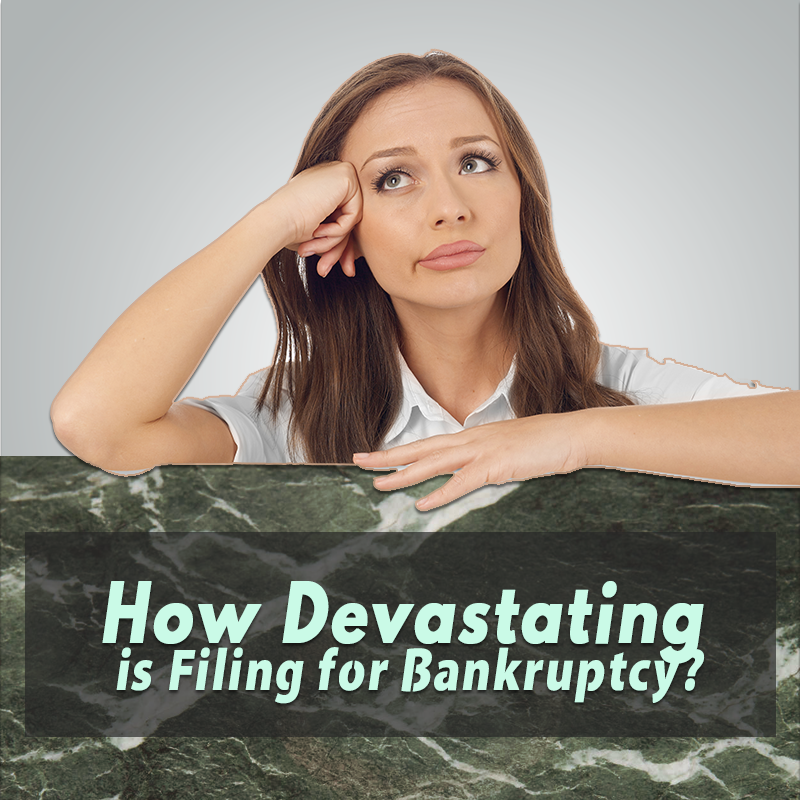How Devastating is Filing for Bankruptcy?

If you are dealing with constant creditor phone calls or are struggling to pay even your necessary bills, such as your mortgage, electric or groceries because you are dealing with mounting debt, filing for bankruptcy may have crossed your mind. The collection agents are probably threatening you with legal action, if they have not already started proceedings. You may be concerned that one of the creditors may file a wage garnishment, which could further increase your financial instability and cause problems with your employer.
Too often, people avoid bankruptcy because they are concerned about the damage to their credit or the embarrassment of admitting they cannot pay their bills. The fact is the majority of bankruptcies are filed by people just like you who may have gotten over their head in debt through no fault of their own, either due to an unexpected job loss or an illness that incurred significant medical bills. In most cases, bankruptcy is far less devastating than ignoring the bills that are mounting, as long as you have an understanding of the process.
Types of Bankruptcy
Before you file, it is important to understand that there are two types of bankruptcy. A Chapter 7 bankruptcy allows you to discharge most or all of your outstanding debt through a short three- to six-month process. Chapter 13 bankruptcy is actually a debt reorganization plan where you use what income you have to pay your debts over the next three to five years. There are also alternatives to bankruptcy, such as negotiating lower payments with your creditors or seeking assistance from a reputable credit counseling agency.
Eligibility for Bankruptcy
Because Chapter 7 bankruptcy eliminates your debts, you may not be permitted to file this type of bankruptcy if you have income enough to pay debts through Chapter 13. If you have debt that is significantly higher than your income, you may not be able to file Chapter 13 as you would be unable to pay the reorganized payment amounts, in which case Chapter 7 may be recommended. Understand that some debts, such as child support and student loans, cannot be eliminated through either Chapter 13 or Chapter 7.
Property Ownership
Mortgages cannot be discharged under bankruptcy, but eliminating other debt could make it easier to pay your mortgage. If you have significant equity in your home, you may lose that equity in order to pay some of your debts. Chapter 13 allows you to pay off any mortgage arrears through the reorganization plan, but you will be required to keep your mortgage current during the repayment. In most states, you will not automatically lose your home if you file bankruptcy. Each state has specific exemption laws that allow you to keep property, including vehicles, tools you need for work and household items. In addition, pension plans, IRAs and 401(k)s are usually protected under exemption laws.
Credit Cards and Co-Signers
Under Chapter 7, all unsecured debt may be discharged, and this includes credit cards. However, if you were unable to get the credit card or debt on your own and you used a co-signer, you need to understand what will happen should you file for bankruptcy. If you file Chapter 13 bankruptcy, co-signers are protected. However, filing Chapter 7 will require them to pay any debt you have charged off under the filing.
If you or a loved one are dealing with collection agents because you are unable to pay your bills, filing for bankruptcy may be the answer. Contact us today to learn what rights you may have. You can reach us by phone to arrange your initial consultation or complete the simple query form online. We’re here to show you how bankruptcy may be far less devastating than you believe.



